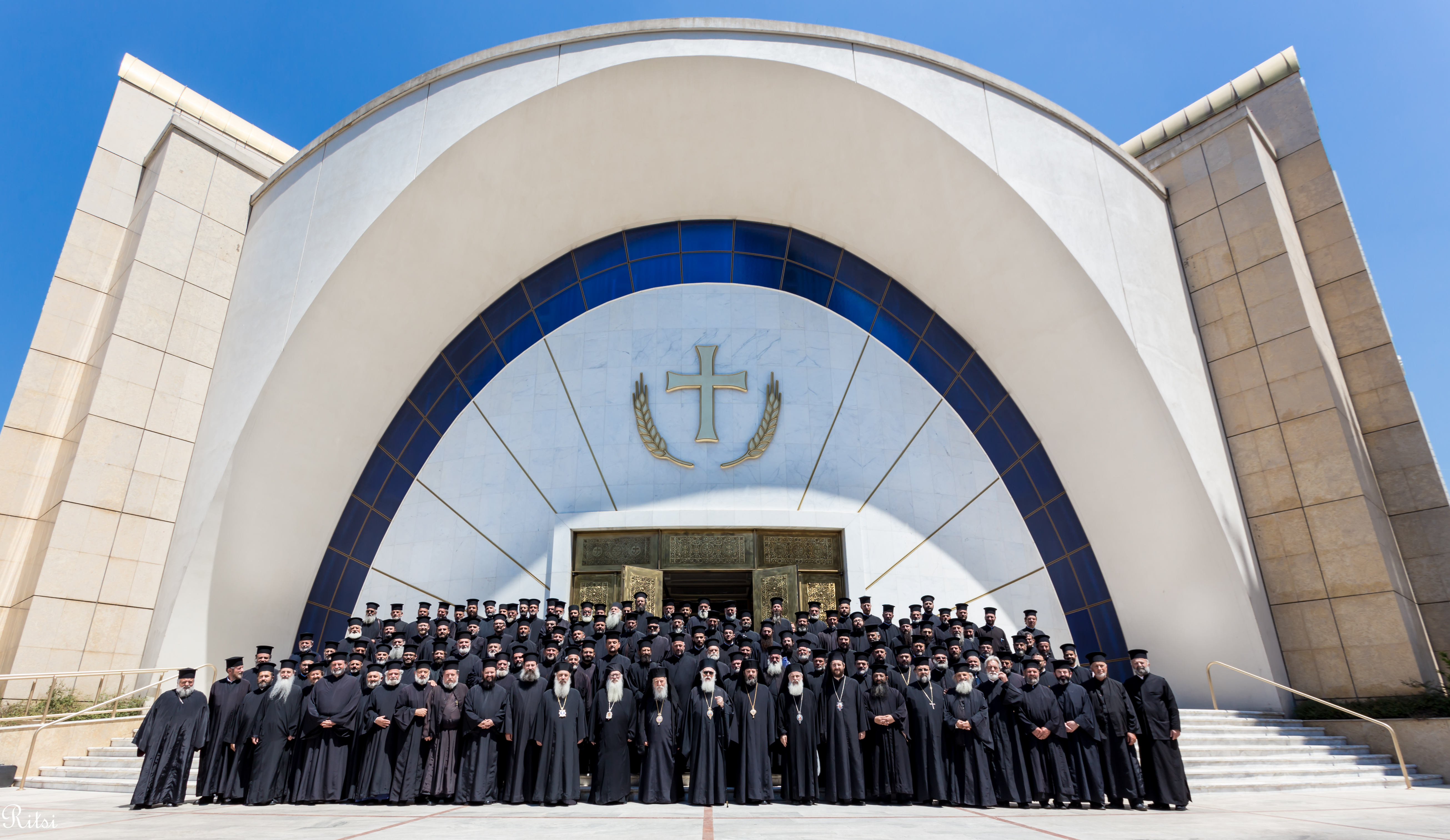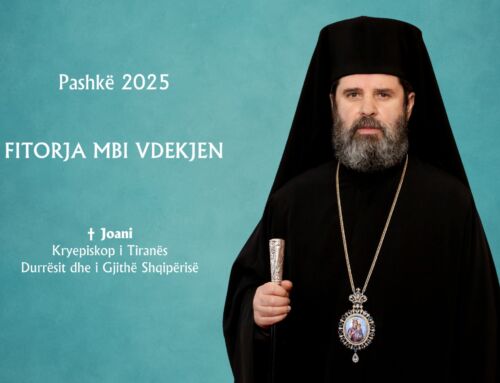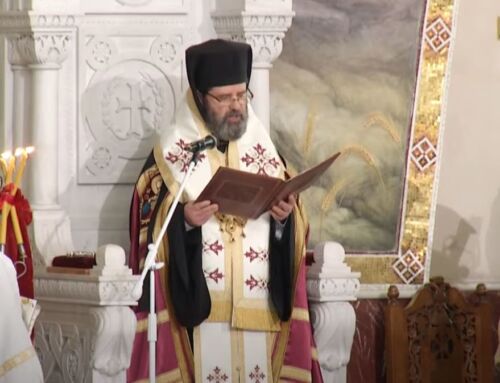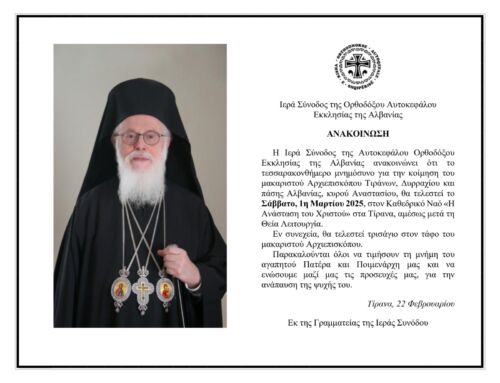On June 24, 1992, His Beatitude Anastasios was elected as the Head of our Church by the Ecumenical Patriarchate
On June 24, 1992, after the advent of democracy in Albania, the Ecumenical Patriarchate elected Metropolitan Anastasius, as the first archbishop of the Orthodox Church. Such a choice marked the renewal of the Autocephalous Orthodox Church of Albania, which had suffered total destruction by the Communist regime. This event was also a revelation of the good news that the Church of Albania was still alive and full of life and could continue its spiritual work through the help of God in order to benefit the entire Albanian society.
Archbishop Anastasios arrived in Albania in July 1991 as Patriarchal Exarch, and observed what the atheistic ruins had left behind. Soon, His Beatitude, who had been specially honored by all the other Orthodox Churches in the world, became a loving and respected personality of our Church. His name became synonymous not only with the resurrection of the Church in Albania, but was also related to a present-day hierapostle, that is a promoter of dialogue between religions and cultures, a promoter of peace and love for all, a person who cares for the poor and the people in need and who also encourages respect, freedom and dignity towards every one, no matter who they are.
Our church suffered much under the Ottoman invasion period. After Independence, it had only two years’ time to develop canonically, since the declaration of autocephaly, because the fascist invasion and atheistic communist persecution had followed right after. Thus, the beginning of democracy found the Orthodox Church totally destroyed, with no bishops, and with only fifteen old clerics. It was hard to hope for the future. But what is not possible for people is possible for God, who sent a man that made possible what is known as the miracle of the Orthodox Church in Albania.
The case of our country is unique in world history. It was the first time a church had remained without hierarchy. Therefore, in order to solve such a vital, delicate and important issue, an international initiative was undertaken. And the person who would lead our Church through the rebuilding process from the ruins should get accepted by the Orthodox community and state authorities, and Autocephaly should be preserved. Archbishop Anastasios was the right person in the given circumstances. Since the very first moments, he made extraordinary efforts to educate the Orthodox clergy in the country, who initially lived in a rented environment on the beach of Durres, and then the Theological Academy in St. Vlash was built with funds collected by our Archbishop, who never stopped his decisive efforts for the consolidation of our Church’s independence. The Church’s resurrection process needed an ecclesiastical hierarchy to be set up, and the right candidates to be trained in order to run the Church. The Church needed clerics and theologians, and above all financial support as most of the church property was not returned back. In the years to follow, over 150 local priests started to serve, plenty of administrative facilities were provided, lots of monumental churches were restored, a system of social and educational assistance that had never existed before was set up, and the restoration from the nothingness of the ecclesiastical economy started to flourish.
All this miraculous work has received high recognition and gratitude not only by the Orthodox faithful, but also by the whole Albanian society. President Ilir Meta, in his letter to Archbishop Anastasios on the occasion of receiving his Albanian citizenship, stated among other words that: “During the 25 years of serving as Archbishop of Tirana, Durres and all Albania, you have proven to be led by faith in God, love, peace, hope and God’s teachings while carrying out your sacred work and contributed with devotion for the complete canonical and spiritual revival of the Orthodox Autocephalous Church of Albania in its restoration and upbringing process; you contributed for the flourishment of Orthodox faith, the cultivation and preservation of the old traditions of Orthodox faith in Albania and for the construction of works in the fields of education, health, social welfare, rural development, culture, and environment in Albania … “




